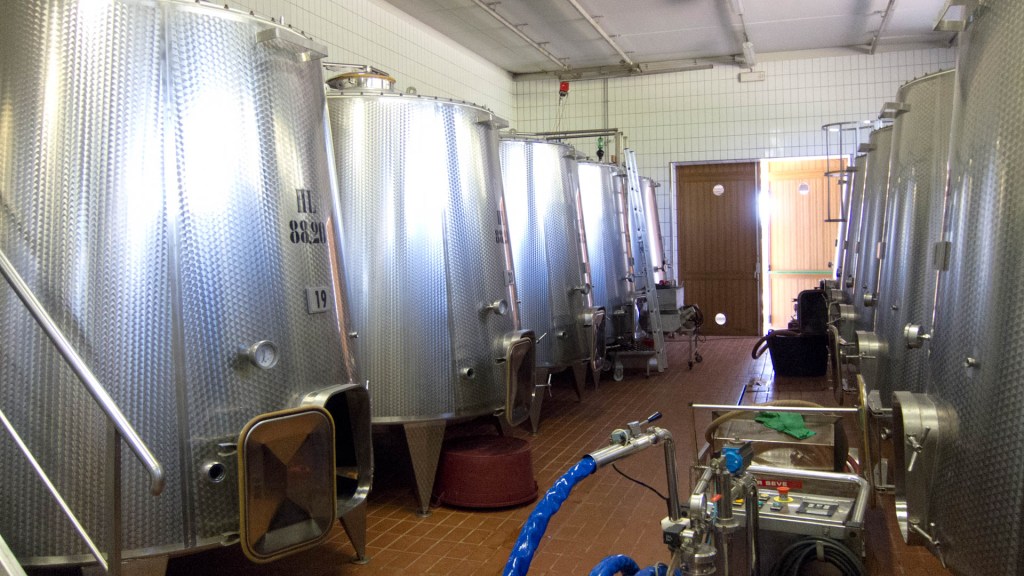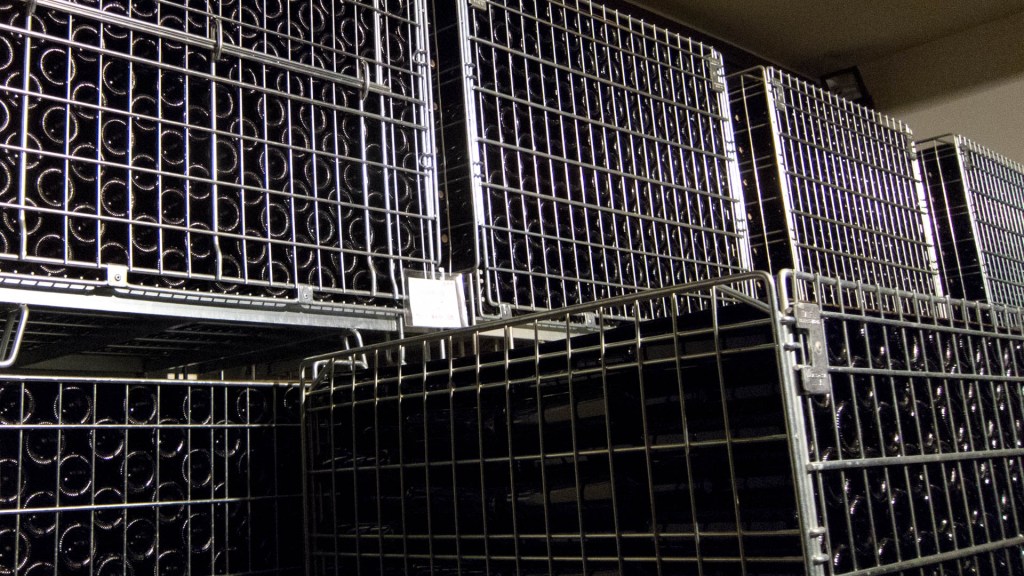I
f you’re a big fan of wine but still want to run a startup, there may not be that much innovation you can get away with on the product side. Wine, when all is said and done, is still wine.
That doesn’t mean you can’t turn the industry inside out by turning the traditional winery business model on its head — and that’s exactly what Naked Wines did. I decided to have a closer look at how a 10-year-old company can upend one of the oldest industries in the world.
What do you get when you mash together half a stalk of grapes, a handful of angel investment principles, a sprinkling of crowdfunding and a well-oiled marketing machine? You end up with Naked Wines, a young winemaking company that’s shaking up the world of wine. For its angels, it’s offering up one of the tastiest “exits” imaginable: wine.

Turning money into wine
When I started digging into Naked Wines, it struck me how similar the company’s role is to publishing, from a winemaker’s perspective. A winemaker pitches an idea for a wine at the company. If its in-house winemakers like the idea, they pay the winemakers a stipend, not dissimilar to an advance on a book deal.
Naked Wines then fronts the winemaker money to buy (or grow) grapes, along with access to winemaking and bottling facilities. And once the wine is ready, Naked Wines takes care of the marketing and distribution of the wines.
You can imagine a Shark Tank kind of situation, except with wine drinking. It’s great fun.
“For the winemakers, we help de-risk their lives,” Naked Wines’ U.S. president Anne Saunders tells me. She points out that, much like carrots and potatoes, wine is an agricultural product. Unlike root vegetables, where you see a result after a few weeks, for a wine, it can take years to determine whether or not an experiment was a success. “By working with us, winemakers don’t have to worry about whether or not the wine is sold. We buy the full production of wine, so they can just focus on the art of making wine.”
Makes sense, but making wine isn’t cheap. So where does the money come from? That’s the other big innovation on the business model. Naked Wines sells a recurring wine club membership to its members, whom it calls “angels.” By paying $40 per month, a customer unlocks the doors to the Naked Wines cellars. The money contributed on a monthly basis accrues as “wine credits” over time and can be exchanged for wine at a steeply discounted price.

Well done, sun
The sun sets over the vineyard, after another long day of turning air and mud into delicious grapes.
Encouraging the weird and the experimental
If you’ve bought a bottle of wine from a supermarket, liquor store or wine merchant in the U.S., there’s an excellent chance that you’ve bought a bottle created by one of only a handful of wine super-producers.
“A challenge in the wine industry is that it consists of a small number of large conglomerates,” Saunders says, referring to the likes of Gallo, Constellation and Treasury. For winemakers, the conglomerates are a great way to get access to the resources to make wine, but many of the large producers are hesitant to try something new and exciting.
New and exciting is the rallying cry for a lot of what’s going on with Naked Wines. Instead of relying on benefactors, external investors or huge faceless wine conglomerates, the company is enabling winemakers to make the wines they want. Even more rare is the opportunity for the winemakers to speak directly with the consumer — and vice versa. In fact, winemakers respond to the majority of reviews left by customers on the site.
The thing that makes Naked Wines really work, then, is that the company is able to attract talented, independent winemakers who want to experiment with new ideas, connecting them directly to its end consumers.

Boo, Big Grape!
The vast majority of these bottles come from a very small number of companies.
From crazy idea to affordable bottle
“All of our wines start with an idea,” Saunders explains as she gets excited about some of the concepts the company has backed in the past. “Our chief winemaker is a distinguished winemaker. He heads up a staff of six that runs the winery. Between them, they decide which winemakers and which wines to take a chance on. You can imagine a Shark Tank kind of situation, except with wine drinking. It’s great fun.
“We had one winemaker who wanted to source Cabernet grapes from all around the world and create a global Cabernet blend. Another wanted to create a two-hemisphere Malbec with grapes from California and Argentina. We have a self-taught winemaker who fell in love with the Vermentino grape variety. He thinks it would grow well here in California, so we’re working with him to plant them here, creating a completely new California Vermentino.”
Most impressively, the company is able to keep the wines affordable. The highest-ranked wine on the site, for example, has more than 15,000 reviews; 94 percent of the people who bought it would buy it again. To Angels, the price tag is $17. The vast majority of wines cost between $9 and $30.
“One of our winemakers, Ana Diogo-Draper, is the chief winemaker at Artesa,” Saunders explains, trying to solidify what’s in it for the winemakers. While Diogo-Draper might be the brains behind the wines from a prestigious winery, her name isn’t on the wines themselves. To take a leap into more playful, experimental wines, she turned to Naked Wines in order to have the artistic freedom to make wines to her own vision.

Three parts
Winemaking is part agriculture, part experience and part magic.
Powered by the interwebs
For Naked Wines, which was founded by Rowan Gormley in the U.K. in 2008, the idea was to bring the then-novel concept of crowdfunding to the world of winemaking.
“The business model is completely enabled by the internet,” says Saunders. “We see ourselves as a crowdfunding site of sorts; in fact, that’s where the original idea came from. The founders had been in the wine industry and wanted the independent winemakers to be independent. The solution they chose was crowdfunding.”
By billing its more than 90,000 U.S. angels a minimum of $40 each on a monthly basis, the company can enjoy a healthy cash flow. While it is hesitant to share its exact revenues, even assuming that everyone is paying in the minimum amount, we are talking about a business with an annual recurring revenue of well over $43 million — and that is just its relatively new U.S. business. Across Australia and Europe, the company has a large number of additional angels.
The company has shown innovation in other aspects of finance, too. In 2013, Naked Wines took a loan from its customers in the form of a Wine Bond, offering 7 percent interest to people fronting the company money, or 10 percent to those who instead opted to be repaid in Wine Credits — account credit in their Naked Wines accounts. The campaign was tremendously clever, both in terms of its result (it raised £5 million/$6.5 million in less than a month) and in business terms, raising a large sum of money from the crowd without having to offer equity in the company in return.
Winemaker Ana Diogo-Draper Naked Wines founder Rowan Gormley
Tracking every bottle from vineyard to customer
The other place where Naked Wines is innovating is on the distribution side of things.
“An interesting thing happened when prohibition ended,” muses Saunders, suggesting that the seeds of the current state of alcohol distribution were sown in the early 1930s. Very soon after the 18th amendment was repealed, a complicated distribution network was established. Part of the result of this is that with very few exceptions, winemakers cannot sell their wines directly to the public. “It is a very deep-seated distribution network, which is often a problem for alcohol producers. For us, it’s actually a competitive advantage: Because we built our own network, our winemakers’ wines are available in a lot more places than what a small winemaker can typically expect.”
Doing your own alcohol distribution is more disruptive than you would imagine; the distribution market is intensely fragmented, with a large number of small distributors covering relatively small geographic areas. The matter isn’t made any easier by the fact that state laws differ wildly from state to state.
“We ship to 43 different states,” says Saunders, admitting that distributing across the U.S. is challenging on a number of levels. “Every state has slightly different rules. We can only ship a certain number of bottles to Minnesota addresses, for example. For other states, like Pennsylvania, we can only ship to a licensed liquor store. And for some states, such as Utah, we can’t ship anything at all.”
If that sounds complicated, try to imagine the full depths of the logistics of the operation. Because state tax laws vary for alcohol — and in some states, the taxes are different based on the percentage of alcohol — never mind tracking cases of wine. The company had to develop a whole software backend to track the alcoholic grape juice flowing throughout the company’s logistics network. For tax and legal compliance purposes, each individual bottle is tracked from the winery, via the company’s three distribution centers in California, Florida and Ohio, to the consumer.

Deepening the competitive moat
If that sounds like a nightmare to set up, you’re definitely onto something, but on the flip side, it does give Naked Wines a fantastic moat to ward off competitors. The company is doing a similar thing with the vast amount of data it is collecting.
“The really interesting thing starts happening when people rate their wines,” says Saunders, revealing that the company’s more than six million wine reviews is enough data to do Netflix-esque “if you liked X you should try Y” recommendations for wine.
“What it all comes down to is that we are all about enabling winemakers to work on their passion projects. For the winemaker, we are able to help finance their dream wines becoming a reality. And for the customer, we offer the opportunity to be part of a whole series of new wines,” says Saunders. To that end, she explains that naming the subscribers “angels” was anything but a coincidence.
“We know that wine lovers are attracted to this business model. It’s people who want to know where their food and wine comes from. I suppose,” Saunders concludes, “they are also angels in the sense that they help dreams come true.”

Lead image: Ken Hawkins, Flickr, under a CC BY 2.0 license
Photos: Haje Jan Kamps






























Comment